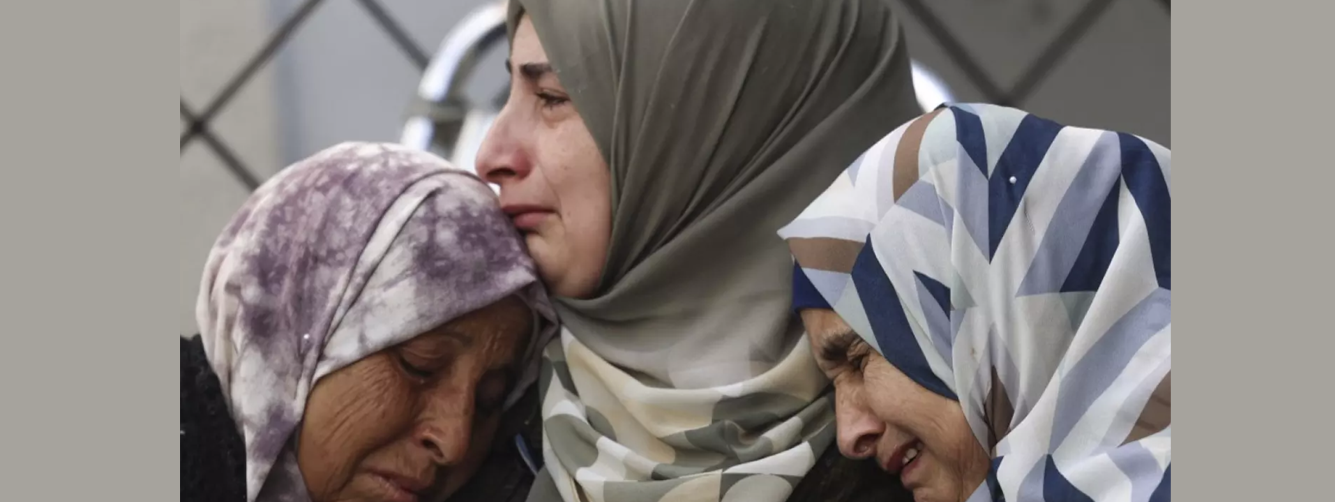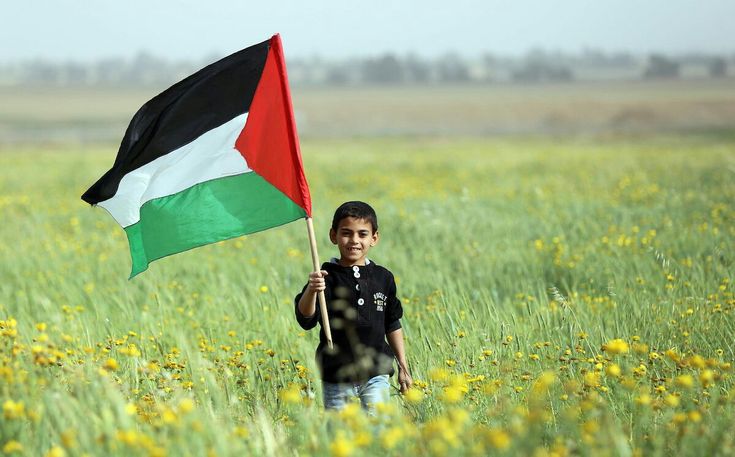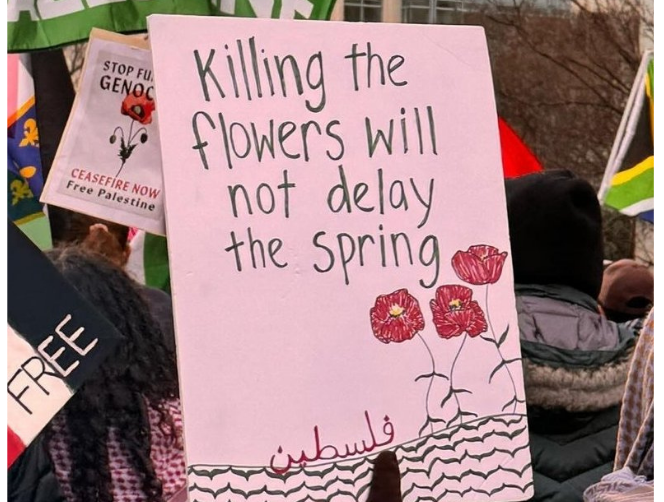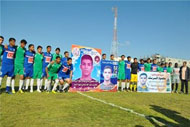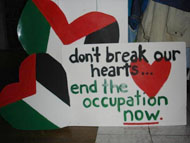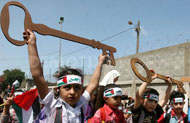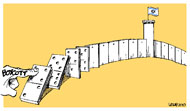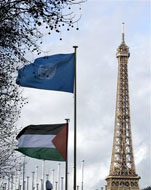
While the sun broke through the clouds and sent rays of sunshine over rainy Paris, the Palestinian flag was hoisted above the UNESCO headquarters yesterday. Both the ceremony and the media coverage were crammed with symbolism, and rightly so, as this is the first time the red, green, black and white flag waves on a flagpole outside a UN agency. "This is truly a historic moment," President Mahmoud Abbas said at the ceremony, attended by 50 diplomatic guests who watched the flag go to the top to the tune of the Palestinian national anthem.
Abbas, like so many others thinking the same thing, quickly moved on to the bigger picture about what the UNESCO membership means for Palestine. "It is moving to see our flag raised and for it to be flying in this beautiful city of Paris among all the other states. This bodes well for Palestine becoming a member of other international institutions," Abbas said. It is no secret that applying for membership in UNESCO is most of all a political game, a small step on the way to full UN recognition of the Palestinian state. Membership in the UN cultural agency is a historical move, no doubt, and a symbolic boost for the push for an independent state, but I for one would like to stop and take a moment to consider what it means for Palestine to be a member of UNESCO in itself, not just as a stepping stone towards something else.
UNESCO’s mandate is among other things, to ensure clean water, improve education, promote freedom of speech and not least of all to protect cultures through its World Heritage sites. In this beautiful corner of the world it is hard to take a step without treading on something that has historical value for someone. But instead of these treasures being protected and preserved, they are continuously used in the geopolitical mapping game of what piece of land belongs to whom. Palestine has an abundance of national and cultural heritage worth preserving; sadly much of it is in danger of becoming yet another victim of the prolonged Israeli occupation.
This weekend a friend of mine took me on a trip to the north of the West Bank. Walking among olive trees in a beautiful field, we found some old pieces of pottery. Sharing my excitement about the treasure we found, my friend told me not to mention the exact area in which we found it, if I were to write about it. The reason? If the Israelis find out, they could use it as an excuse to claim the land, and take it away from the Palestinian farmer who owns it. All this, I thought, over some pieces of pottery.
As a member of UNESCO and a signatory to the World Heritage Convention, Palestine is able to submit nominations of sites for inscription on the World Heritage List. Some of the most prominent sites up for nomination are the Church of the Nativity, Al-Aqsa Mosque, the Dome of the Rock and Al-Haram al-Ibrahimi. As this area and Jerusalem especially is a hub of important sites and heritages for several religions, it is important to note that World Heritage Sites do not belong to one faith or community but to all, and are protected and maintained by the international community.
Raising the Palestinian flag outside UNESCO in Paris has raised the hope for a UN-recognized state among Palestinian leaders. While we wait (and we all know that we will be waiting a while), we can hope that the UNESCO membership means more than a step towards statehood, and more than a symbol of hope and expectations. The membership also means the possibility of protecting Palestinian culture and heritage from occupation and destruction. At least it can serve as protection to important sites from the existential threats that Israeli control over Palestinian land poses on Palestinian heritage as well as its people.
Julie Holm is a Writer for the Media and Information Department at the Palestinian Initiative for the Promotion of Global Dialogue and Democracy (MIFTAH). She can be contacted at mid@miftah.org.




